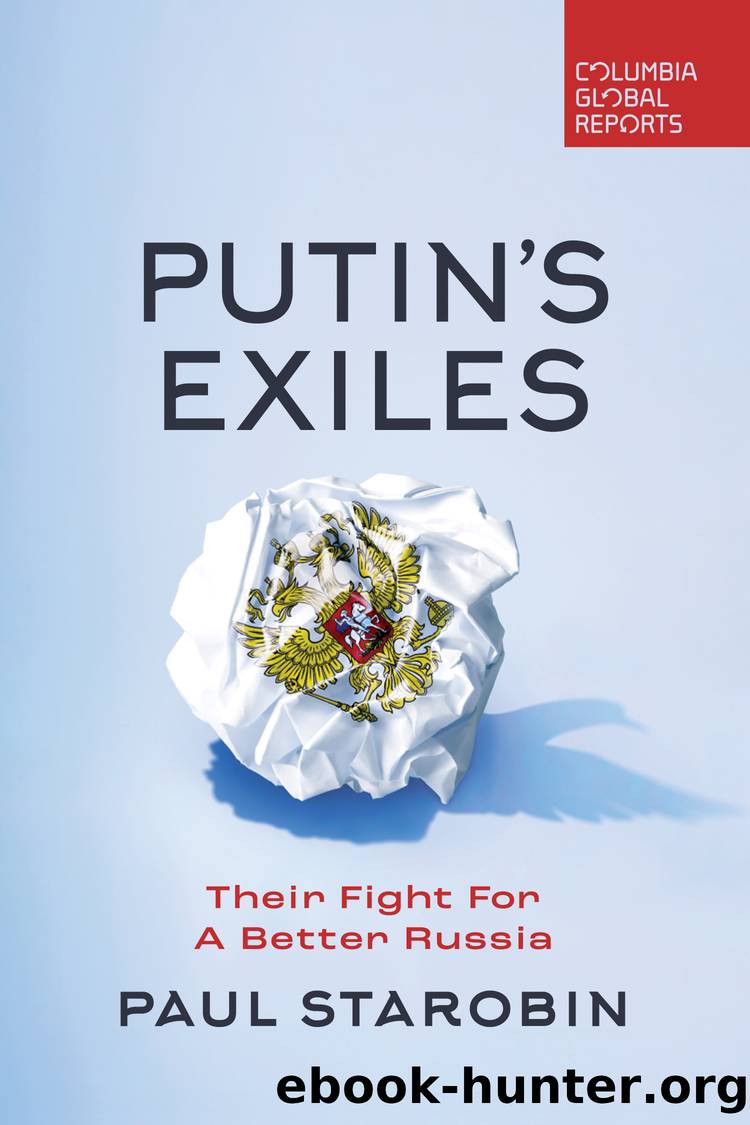Putin's Exiles by Starobin Paul;

Author:Starobin, Paul;
Language: eng
Format: epub
Publisher: Columbia Global Reports
The Spiritual Resistance
âMy Faith Is Optimisticâ
âI am not a political activist,â Father Oleg Batov, a priest of the Russian Orthodox Church, was explaining to me. We were having a light lunch at a café in Batumi. On a December day, ten months into the war, sunlight poured through the glass panes as we gazed out at the placid waters of the Black Sea. With his mane of white hair and a long flowing beard, Batov looked like an Orthodox priest. But he was dressed in an open-necked shirt and jeans, not in the traditional black cassock of the Orthodox clergy. On deciding to flee Moscow shortly after the war began, Batov chose Batumi for its mild climateâand also because he hoped a church there would permit him to preside over services. And for one month following his arrival, he was able to celebrate the rites. But then he received a visit from a bishop of the Georgian Orthodox Church, who told him he had to stop. The bishop, Batov explained to me, was acting out of a desire to preserve good relations with Russian Orthodox Church leaders in Moscow, whose support for Putin and the war Batov had challenged. Now Batov earned what money he could by driving a taxi and offering his services as a tour guide.
His wife, MariaâRussian Orthodox priests are permitted to marryâjoined us at the café, along with the coupleâs teenage son. A metal cross dangled from a loop around her neck. Maria was helping to support the family with private music lessonsâvocal and pianoâto adults and children and with jazz and rock gigs at Batumi restaurants. This turn in their lives was quite a comedown for both Oleg and Maria. In Moscow, Oleg had presided over the sixteenth-century Church of the Assumption of the Blessed Virgin, a minuteâs walk from the Kremlin. Years earlier, he had headed a Russian Orthodox church in Zurich, visited at that time by the wife of Putinâs protégé Dmitry Medvedev. Maria was an accomplished musicologist, a graduate of the Moscow State Tchaikovsky Conservatory who had performed with the Boston Camerata, the renowned early-music ensemble. But the pair evinced no regrets over their decision to flee Russia. Because of the war, it was âjust impossibleâ to remain, Oleg told me. âIn our heart we are Christians,â he said, and Godâs commandment was unambiguous: âThou shalt not kill.â He was not a political activist, by his self-description, but he surely was a kind of spiritual rebel against the powers-that-be in his native land, including the leadership of his own church.
The saga of the Batovs might sound strange to the Western ear. Apart from the Kremlin, no institution in Russia was as reviled in the West as the Russian Orthodox Church. Prominent secular voices in the Russian exile community in Europe widely shared this loathing. On one level, this was understandable. The Church seemed to stand for a mystical sort of Russian imperialism. This outlook was embodied in the organizationâs reigning leader: His Holiness Patriarch Kirill of Moscow and All Rusâ.
Download
This site does not store any files on its server. We only index and link to content provided by other sites. Please contact the content providers to delete copyright contents if any and email us, we'll remove relevant links or contents immediately.
| Arms Control | Diplomacy |
| Security | Trades & Tariffs |
| Treaties | African |
| Asian | Australian & Oceanian |
| Canadian | Caribbean & Latin American |
| European | Middle Eastern |
| Russian & Former Soviet Union |
The Secret History by Donna Tartt(19088)
The Social Justice Warrior Handbook by Lisa De Pasquale(12190)
Thirteen Reasons Why by Jay Asher(8909)
This Is How You Lose Her by Junot Diaz(6887)
Weapons of Math Destruction by Cathy O'Neil(6279)
Zero to One by Peter Thiel(5802)
Beartown by Fredrik Backman(5754)
The Myth of the Strong Leader by Archie Brown(5507)
The Fire Next Time by James Baldwin(5445)
How Democracies Die by Steven Levitsky & Daniel Ziblatt(5218)
Promise Me, Dad by Joe Biden(5153)
Stone's Rules by Roger Stone(5088)
A Higher Loyalty: Truth, Lies, and Leadership by James Comey(4964)
100 Deadly Skills by Clint Emerson(4925)
Rise and Kill First by Ronen Bergman(4789)
Secrecy World by Jake Bernstein(4753)
The David Icke Guide to the Global Conspiracy (and how to end it) by David Icke(4719)
The Farm by Tom Rob Smith(4509)
The Doomsday Machine by Daniel Ellsberg(4490)
